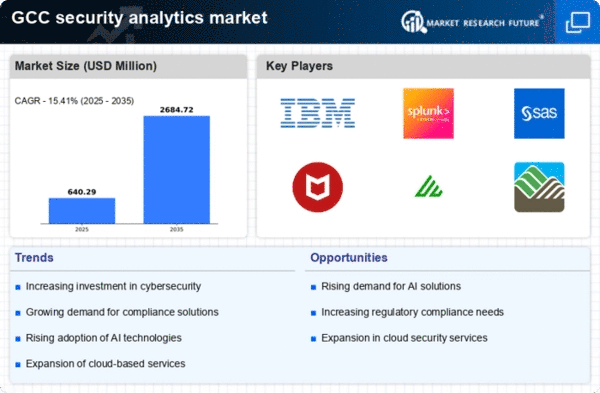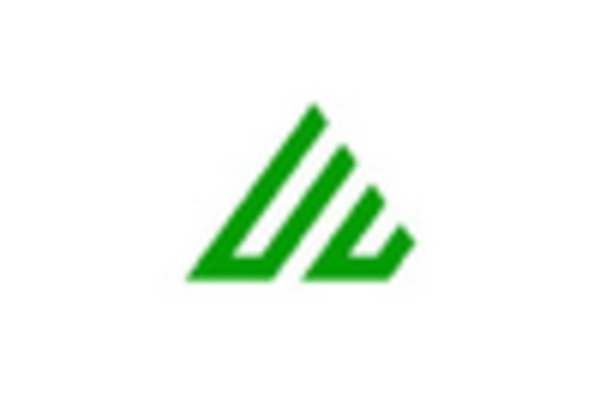Integration of IoT Devices
The proliferation of Internet of Things (IoT) devices in the GCC is significantly influencing the security analytics market. As more devices connect to networks, the potential attack surface expands, necessitating enhanced security measures. Organizations are increasingly adopting security analytics solutions to monitor and analyze data from these devices, ensuring that vulnerabilities are identified and mitigated promptly. The market is expected to see a substantial increase in demand, with estimates suggesting a growth rate of around 12% annually. This trend underscores the importance of integrating security analytics into IoT frameworks, as businesses strive to protect sensitive information and maintain operational integrity in an interconnected environment.
Growing Regulatory Pressures
The security analytics market is being shaped by growing regulatory pressures in the GCC, as governments implement stricter data protection laws. Organizations are compelled to adopt security analytics solutions to ensure compliance with these regulations, which often mandate the monitoring and reporting of security incidents. The market is likely to expand as businesses invest in technologies that facilitate compliance and enhance their security posture. With the potential for hefty fines and reputational damage associated with non-compliance, the urgency for effective security analytics solutions is evident. This trend is expected to drive a significant portion of the market growth in the coming years.
Investment in Cloud Security
The shift towards cloud computing in the GCC is driving the security analytics market as organizations seek to secure their cloud environments. With the increasing reliance on cloud services, businesses are recognizing the need for comprehensive security analytics solutions to monitor and protect their data in the cloud. The market is projected to grow by approximately 18% over the next few years, reflecting the urgency of addressing cloud security challenges. As organizations migrate to cloud platforms, they are investing in security analytics tools that provide visibility and control over their cloud assets, ensuring compliance with regulatory requirements and safeguarding against potential threats.
Rising Cyber Threat Landscape
The security analytics market is experiencing heightened demand due to the escalating cyber threat landscape in the GCC region. With cyberattacks becoming increasingly sophisticated, organizations are compelled to invest in advanced security analytics solutions to safeguard their digital assets. Reports indicate that the GCC has witnessed a surge in cyber incidents, prompting businesses to prioritize cybersecurity measures. The market is projected to grow at a CAGR of approximately 15% over the next five years, driven by the need for robust threat detection and response capabilities. As organizations recognize the potential financial and reputational damage from breaches, the focus on security analytics market solutions intensifies, leading to increased investments in technology and personnel.
Increased Focus on Data Privacy
The heightened awareness of data privacy issues is influencing the security analytics market in the GCC. As consumers become more concerned about how their data is handled, organizations are prioritizing the implementation of security analytics solutions to protect sensitive information. This trend is likely to result in a market growth rate of around 14% as businesses seek to enhance their data protection strategies. By leveraging security analytics, organizations can gain insights into potential vulnerabilities and respond proactively to threats, thereby building trust with their customers. The emphasis on data privacy is expected to remain a key driver for the security analytics market in the region.
















